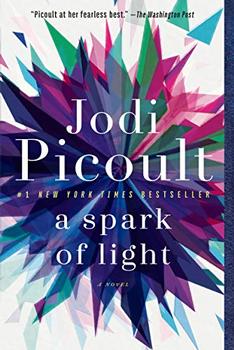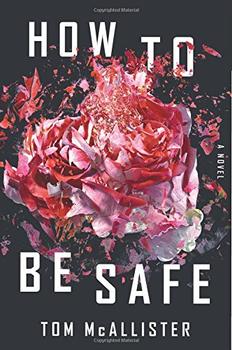Summary | Excerpt | Reviews | Beyond the book | Read-Alikes | Genres & Themes | Author Bio

A shocking crime triggers a media firestorm for a controversial talk show host in this provocative novel - a story of redemption, a nostalgic portrait of New York City, and a searing indictment of our culture of spectacle.
Talk show host Matthew Miller has made his fame by shining a spotlight on the most unlikely and bizarre secrets of society, exposing them on live television in front of millions of gawking viewers. However, the man behind The Mattie M Show remains a mystery - both to his enormous audience and to those who work alongside him every day. But when the high school students responsible for a mass shooting are found to be devoted fans, Mattie is thrust into the glare of public scrutiny, seen as the wry, detached herald of a culture going downhill and going way too far. Soon, the secrets of Mattie's past as a brilliant young politician in a crime-ridden New York City begin to push their way to the surface.
In her most daring and multidimensional novel yet, Jennifer duBois vividly portrays the heyday of gay liberation in the seventies and the grip of the AIDS crisis in the eighties, alongside a backstage view of nineties television in an age of moral panic. DuBois explores an enigmatic man's downfall through the perspectives of two spectators - Cel, Mattie's skeptical publicist, and Semi, the disillusioned lover from his past.
With wit, heart, and crackling intelligence, The Spectators examines the human capacity for reinvention - and forces us to ask ourselves what we choose to look at, and why.
Spanning four decades and taking on a host of topical issues, from gun violence to the coarsening of public discourse, Jennifer duBois' latest novel The Spectators charts the rise and fall of an enigmatic politician-turned-talk-show-host. Broad in scope, the novel explores a seminal era in LGBTQ+ history with insight and intelligence—a sensitive portrayal of the devastation wrought by the AIDS epidemic...continued
Full Review
(775 words)
This review is available to non-members for a limited time. For full access,
become a member today.
(Reviewed by Michael Kaler).
 Jennifer duBois' The Spectators is centered around the fallout after a mass shooting at a school, an incident that was rare in the 1990s when the novel takes place, but has become seemingly ubiquitous over the past two decades (See School Shootings & Conspiracy Theories for statistics). Each of these shootings is accompanied by a public outcry, yet no meaningful gun control legislation has been passed. In the past two years, however, anti-gun protests have begun to reach a fever pitch.
Jennifer duBois' The Spectators is centered around the fallout after a mass shooting at a school, an incident that was rare in the 1990s when the novel takes place, but has become seemingly ubiquitous over the past two decades (See School Shootings & Conspiracy Theories for statistics). Each of these shootings is accompanied by a public outcry, yet no meaningful gun control legislation has been passed. In the past two years, however, anti-gun protests have begun to reach a fever pitch.
A slew of signs suggest that the public increasingly favors stricter gun laws. According to a survey Pew Research Center conducted late last year, almost six in ten Americans believe that the nation's gun laws are too lax. A Navigator report also found ...
This "beyond the book" feature is available to non-members for a limited time. Join today for full access.

If you liked The Spectators, try these:

by Jodi Picoult
Published 2019
A powerful and provocative new novel about ordinary lives that intersect during a heart-stopping crisis.

by Tom McAllister
Published 2018
We Need to Talk about Kevin meets Dept. of Speculation in a novel about one woman's furious grappling with the repercussions of small-town tragedy.
We must believe in luck. For how else can we explain the success of those we don't like?
Click Here to find out who said this, as well as discovering other famous literary quotes!